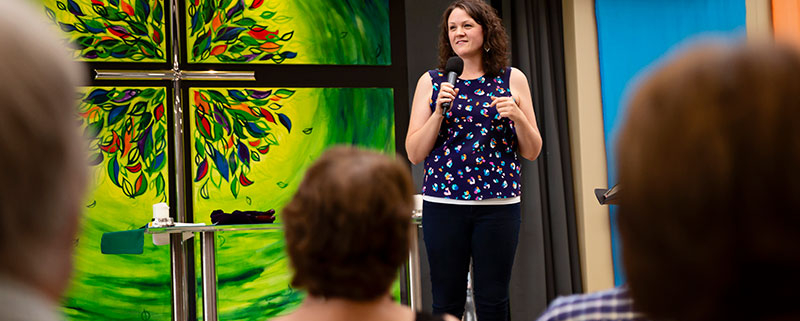Anna Doecke didn’t recognise she was suffering from burnout until a counsellor pointed it out to her. Since then, she has learned how to set boundaries and treat herself with care and respect.
by Anna Doecke
It was August 2011 when I had a conversation with my counsellor, who identified that what I was experiencing was burnout. ‘Burnout?’, I inquired, having never heard that term – apart from what the local lads used to do in the back paddock near the farm where I grew up.
My counsellor explained that I needed to learn to look after myself. She introduced me to words and concepts such as self-care, date days, being kind to myself, setting boundaries, saying No and asking for what I need.
I was almost 26 at the time and had just moved back to Adelaide after working as a youth worker and chaplain in schools and churches in Adelaide, Melbourne and the Gold Coast for seven years.
As I reflect on my years in ministry, I have many fond memories. They were some of the most formative and fun years of my life. I had great friends and community, but it was a very busy time. There were many factors that led to my burnout. It wasn’t easy being away from home at a young age and I often felt homesick.
I struggled regularly in my work environment, feeling that I was unsupported and isolated and with impossible tasks and expectations piled on me. My immediate pastors and managers were great, and we would often talk through how to make changes, but this rarely resulted in any long-term helpful solutions. I was also studying and caring for my housemate who had mental illness. Life was busy and simply too full.
I was a ‘yes woman’ and this went on for about four years. I and those around me didn’t know about boundaries. I didn’t know how to say No, and didn’t know I needed to say No. I didn’t know what I needed. I didn’t know how to ask for help. It was also in the era where burnout and self-care were only just starting to be talked about – much different from now.
Unfortunately, I didn’t know I was heading towards burnout, or already burnt out. Upon reflection, and through my counselling journey, I have become aware of the signs. These include: losing motivation and excitement for work and life; feeling overwhelmed, and more anxious or worried than normal; struggling to make decisions; having a sense of feeling depressed; lacking empathy; increasing irritability or anger; feeling exhausted; being unproductive at work; experiencing a change in eating and sleeping habits, and suffering from headaches, light-headedness or nausea.
Apart from experiencing some of these signs and symptoms, I was also behaving in ways that were unhelpful, including: saying Yes to everything and everyone, feeling like I couldn’t say No, not taking a lunch break (or any breaks), being out every night of the week, not asking for help, withdrawing from social activities, and people pleasing.
Unpacking my life in therapy really helped me to heal and understand what got me to burnout.
A significant cost I now live with is a reduced capacity for work and life. It’s common that once you experience burnout your capacity changes. A lot of people think they can get back to where and who they were before burnout, but in fact we walk through the recovery to discover a new and better version of ourselves – usually more authentic and ‘real’ than the person before burnout.
I am so grateful for the incredible friends, family, and support people I have in my life. They were vital in my recovery process, and continue to be now. I have learned that by being courageous, and sharing my vulnerably with them helps them to understand me better and know how to support me. Unless I tell them, they can’t help.
In my recovery I learned that burnout is preventable, and I now work in various roles spreading the message of burnout prevention. As a counsellor and speaker with Journeez, I help women and groups to transform stress and burnout into wholehearted living. I also work as a regional manager with Schools Ministry Group, where I support pastoral care workers to help young people discover purpose, value and hope.
Anyone who knows me knows that preventing burnout and increasing self-care and wholeheartedness is in my bones. It’s not unusual for me to ask a co-worker, friend or loved one: ‘When was the last time you did something for yourself?’
My biggest learning from this journey is that we all have a choice. Often, we think we are stuck in our situation, but I will never forget what a mentor once said: ‘Not making a decision is making a decision’. What choices do you need to make today to prevent burnout, ask for help or be the best version of yourself?
One of my favourite quotes that helps me on this journey is from Dr Brené Brown who says: ‘I am never more courageous than when I am embracing imperfection, embracing vulnerabilities and setting boundaries with the people in my life.’
Anna Doecke is a counsellor and speaker at Journeez (www.journeez.com.au) and regional manager at Schools Ministry Group.




